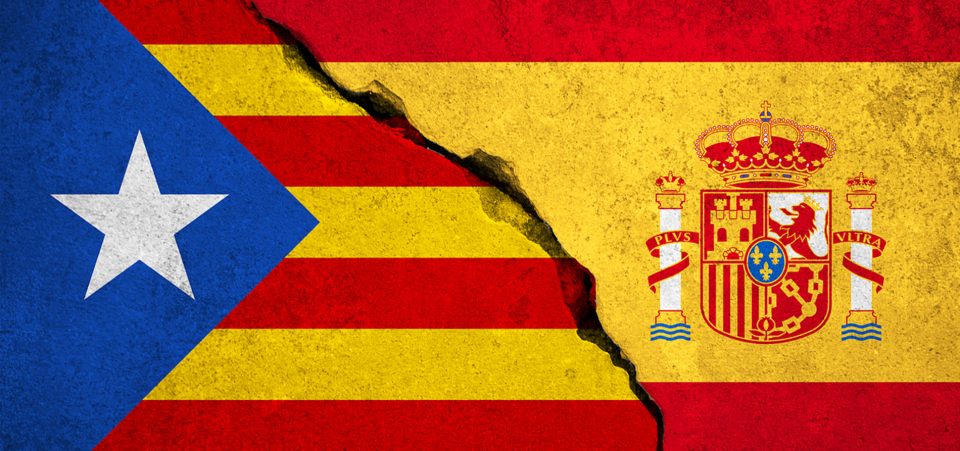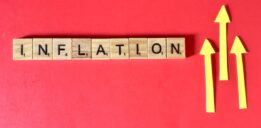Global Recession and a Massive Stock Market Crash Would Result from Catalonia’s Independence
The illegal vote over independence in Catalonia held on Sunday, October 1—regardless of whether it will eventually lead to secession—casts Spain and the European Union in a political crisis. The European Union and the world economy have survived Brexit, the Italian referendum, and the French elections. The German election results have given us and the markets something to think about. But the Catalan vote might well be the one that sparks a Europe recession. It won’t stop there. The markets may be at record highs, but they are fragile. Thus, the Catalans could spark a global recession in 2017.
How can a small region of Europe, best known for its Champions’ League-dominating soccer team, FC Barcelona, send Europe into recession and economic chaos? Consider that Catalonia happens to be Spain’s richest province. By itself, thanks to tourism and industry, it accounts for almost 20% of Spain’s gross domestic product (GDP).
How does Catalonia affect John or Jane Doe in Michigan? Well, if they have invested on Wall Street, they may want to keep an eye out.
Here’s How the Catalan Referendum Can Affect Wall Street
First of all, it’s clear that the risk is higher. The proof is that the 10-year Treasury rate has risen to 2.37%, the highest since mid-July. This also signals the fact that the Federal Reserve wants to take on a more aggressive attitude, lifting rates. Understand that the main reason the markets have kept any measure of bullish sentiment has been due to the maintenance of record low nominal rates. Once the Fed increases these, there’s no telling how Wall Street will react.
And even if the stock markets haven’t dropped yet, there is the perception of increased risk and uncertainty in the global markets, which will reach Wall Street. There will likely occur a continuous stream of news suggesting a deterioration of stability in Europe. Bank stocks, like Deutsche Bank, heavily exposed to derivative risk, could blow up, sending shock waves in the Dow Jones. The Federal Reserve’s next rate hike would simply act like a match thrown against a pyre.
The economic consequences of the split, considering that Catalonia accounts for almost 20% of Spain’s GDP, would leave Spain as a sitting-duck member of the European Union, while Catalonia would be left out of the union entirely. There’s no way Madrid would allow Catalonia to apply, let alone, gain access to the EU. Catalan independence has far-reaching and hard-to-predict repercussions. The possible economic consequences of a separation could prove traumatic. (Source: “Here’s how bad economically a Spain-Catalonia split could really be,” CNBC, September 21, 2017.)
Unlike the other EU risks of 2016 and 2017, Catalonia’s split involves borders. Amid the resentment, which will persist regardless of the outcome, there are massive logistical issues involved. For example, Alain Cuenca, an economics professor at the University of Zaragoza, expects Spain to boycott Catalonian goods. Both Spain and Catalonia would end up suffering major consequences, such as loss of jobs and income, as a result of the split. A recession in both countries is the least harmful of outcomes. (Source: Ibid.)
The referendum, despite the Spanish government warning that it was illegal, went ahead. The European Commission does not recognize the vote. But, no matter. The damage has been done, and quite heavy damage it is. (Source: “Statement on the events in Catalonia,” European Commission, October 1, 2017.)
Catalan President Carles Puigdemont remains determined to push forward on the path to independence. Spanish Prime Minister Mariano Rajoy will be spending the next days and weeks managing the delicate situation. Rajoy might activate Article 155 of the Constitution to suspend Catalan autonomy before a possible declaration of independence.
Yet, this will not make the problem go away. It will only exacerbate it, increasing tensions. Frankly, the declaration of independence for Catalonia would mean a huge mess for the EU and the euro. It would send the EU markets in a tailspin, potentially reaching Wall Street, causing the stock market crash everyone expects.
To understand the scope of the mess, consider that 90% of the votes cast in the Catalan independence referendum were “Yes,” according to figures released by Catalan government spokesman Jordi Turull. But only 2.2 million out of a population of about 7.5 million in Catalonia went to the polls. Only 7.8% of them voted “No.” The rest of the ballots were blank or void. (Source: “Catalan referendum: preliminary results show 90% in favour of independencefavour of independence,” The Guardian, October 2, 2017.)
Thousands of supporters of independence gathered in Plaza Catalunya have been keen on announcing the results, walking through Barcelona’s central plaza, waving a sea of starry flags of Catalan independence.
Beware, the Wolf Could Finally Make an Appearance in Catalonia
It’s hard to dismiss fears, given the fact that the elections and Brexits of the world that were supposed to have caused havoc did not. But when someone cries wolf, there comes a time when the wolf actually appears. The referendum for the independence of Catalonia is one such episode. Moreover, it comes after Germany’s political elections. These have confirmed that hard right-wing politics are making a rather unwelcome return in European national parliaments.
Catalan independence could have a domino effect. Apart from encouraging other regional fractures within EU individual states, it adds much political, social, and economic stress. This is at a time when Europe has still not gotten around to the Brexit talks. Meanwhile, that same Europe needs good news to boost its strength to finally leave behind the political and economic recession that started nine years ago.
In addition, the Spanish crisis will throw a wrench into efforts to consolidate European monetary policies. The European Central Bank, like the Federal Reserve, has been planning a pain-free path out of quantitative easing (QE). It wants to boost interest rates. Catalonia’s independence would scrap that plan.
It would mean weakening the euro and causing the Fed to reconsider its plans, which would in turn merely inflate the Bubble on Wall Street, making the inevitable stock market crash that much louder. In 2014 and 2015, the Greek financial crisis and its potential departure from the euro was seen as a major threat.
But, Catalonia is better integrated into the world economy than Greece. Moreover, as all civil and nationalist disputes always end up, bitterness ensues. The risks of an internal Spanish conflict cannot be ruled out. It happened before, as anyone who’s ever read Ernest Hemingway knows.






